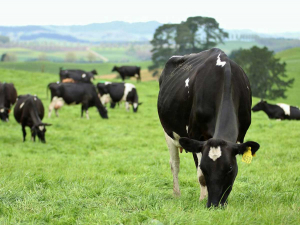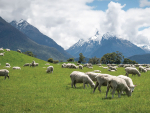Now is the time to be proactive about managing facial eczema.
As mating season draws to a close and the hot, humid weather sets in breeding company CRV Ambreed is urging dairy farmers to be proactive about managing facial eczema (FE).
The call comes following an investment by The Ministry for Primary Industries' (MPI) Sustainable Farming Fund to support the Facial Eczema Action Group – made up of veterinarians, dairy farmers and rural professionals – to explore ways of raising awareness of FE so that more farmers take preventative action.
According to a recent study led by Veterinary Enterprises Group (VetEnt) Research, facial eczema could be costing dairy farmers more than $100,000 a year in lost milk production. Not only is the disease costly in dollar terms, but it is also devastating for animal health.
CRV national sales and marketing manager Jon Lee says as well as zinc dosing now ahead of the January to May danger period, farmers should take a longer term view and consider breeding for FE tolerance.
“In most cases you can’t actually see evidence of the disease on the animal. But internally it can be doing irreparable damage to the cow’s liver. There is no cure for facial eczema so taking steps to prevent it is the only option.”
Since 2011, CRV has offered semen from bulls with an increased tolerance to facial eczema, following research that discovered how to identify bulls with improved FE-tolerance.
“Now, about 18 per cent of our grazing portfolio has increased tolerance to facial eczema, across the Crossbred, Friesian and Jersey categories,” says Lee. “The daughters of our FE-tolerant bulls are 25-30% less reactive to a facial eczema challenge than the average bull.”
New Zealand endured one of the worst FE seasons in years in 2016 when spore counts ballooned in the North Island and parts of the South Island to the highest in a decade, and many herds had a large number of cows with clinical facial eczema.
“That caused a tripling of orders for straws of semen from bulls with genetics for a tolerance to facial eczema,” says Lee.
“Tens of thousands of straws have been sold in the last few years and we continue to see demand increase with farmers awareness around animal health and welfare increasing.”
CRV’s latest proven sires, including those with FE tolerance, will feature in the herd improvement company’s annual catalogue, due to be released in February.



















